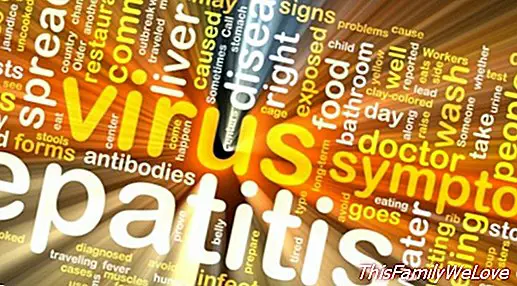What is hepatitis and other questions and answers about this disease

Every 28 of July, the World Health Organization (WHO) and other associations celebrate the World Hepatitis Day, an event designed to "increase the awareness and understanding of viral hepatitis and the diseases it causes", as explained by the WHO.
In particular, this year the rulers, health workers and all people in general are asked to act "now" to prevent "infections and deaths caused by the hepatitis virus." A disease that becomes chronic in 10 percent of cases and whose duration and consequences are very variable. For all these reasons, they have launched the following messages.
Key messages on the World Day Against Hepatitis 2015
- Know the risks. Contaminated blood, dangerous injections and the exchange of injection material can cause the onset of hepatitis virus infection.
- Require safe injections. Every year two million people contract hepatitis through dangerous injections. The use of sterile and disposable syringes can prevent these infections.
- Vaccinate the children. Some 780,000 people die every year from hepatitis B virus infection. There is a safe and effective vaccine that can protect against hepatitis B for life.
- Undergo screening tests and request treatment. There are effective medications to treat hepatitis B and cure hepatitis C.
What is hepatitis?
Although it is a disease that is talked about relatively normally, there are still many people who do not know important data about it. Therefore, we answer some key questions with the information provided by the WHO, starting with the very definition of hepatitis.
Hepatitis is an inflammation of the liver. "The condition may remit spontaneously or progress to fibrosis (scarring), cirrhosis or liver cancer", warn about it from this organization, while commenting that hepatitis viruses are the most common cause of hepatitis, although they can also be due to other infections, toxic substances (for example, alcohol or certain drugs) or autoimmune diseases.
Types of hepatitis and its causes
There are at least five different types of hepatitis: A and E are usually caused by the ingestion of contaminated water or food, while B, C and D are produced by contact with bodily fluids of infected people: through the blood or contaminated blood products, for example.
Symptoms of hepatitis
Hepatitis can quickly improve or "become a prolonged disease," as explained in the US medical library. As for the symptoms, there are occasions (such as hepatitis B) in which there are none, but the most common symptoms are:
- Pain or distension in the abdominal area
- Cloudy urine and pale or clay-colored stools
- Fatigue
- Febrícula
- Itching
- Jaundice (yellowing of the skin or eyes)
- Inappetence
- Nausea and vomiting
- Weightloss
Transmission and prognosis of hepatitis
The American Academy of Pediatrics explains that the prognosis of curing hepatitis depends on the type of disease that affects the person:
Hepatitis A. Its transmission is fecal-oral (from excrement to mouth), from contaminated food and water. The prognosis is of full recovery.
Hepatitis B. Sexual transmission, by blood and needles. The prognosis varies: 10% of older children develop chronic infection, a percentage that is 90% in the case of infected newborns.
Hepatitis C. It is transmitted by blood and needle and the expectation is to suffer the disease chronically.
Hepatitis D. Sexual, blood and needle transmission. Pediatricians explain that this type makes the infection of hepatitis B more serious.
Hepatitis E. Less common, it is usually transmitted by contaminated water. It presents expectations of cure, although in the case of pregnant women the risk of serious illness is greater.
The treatment of hepatitis
There is usually no specific treatment for hepatitis in children, because "the child's own immune system will fight and overcome the virus," say American pediatricians, who add that experts will recommend parents the best care support for the little ones.
In the case of adults, medicines such as interferon and ribavirin are usually used, although the most important thing is the change of habits: alcohol, drugs and weight should be controlled.
Angela R. Bonachera




